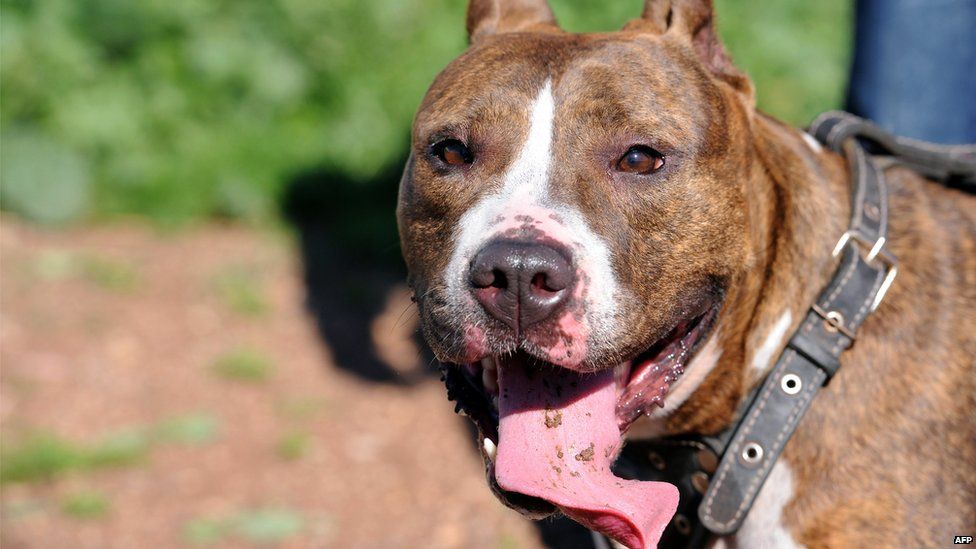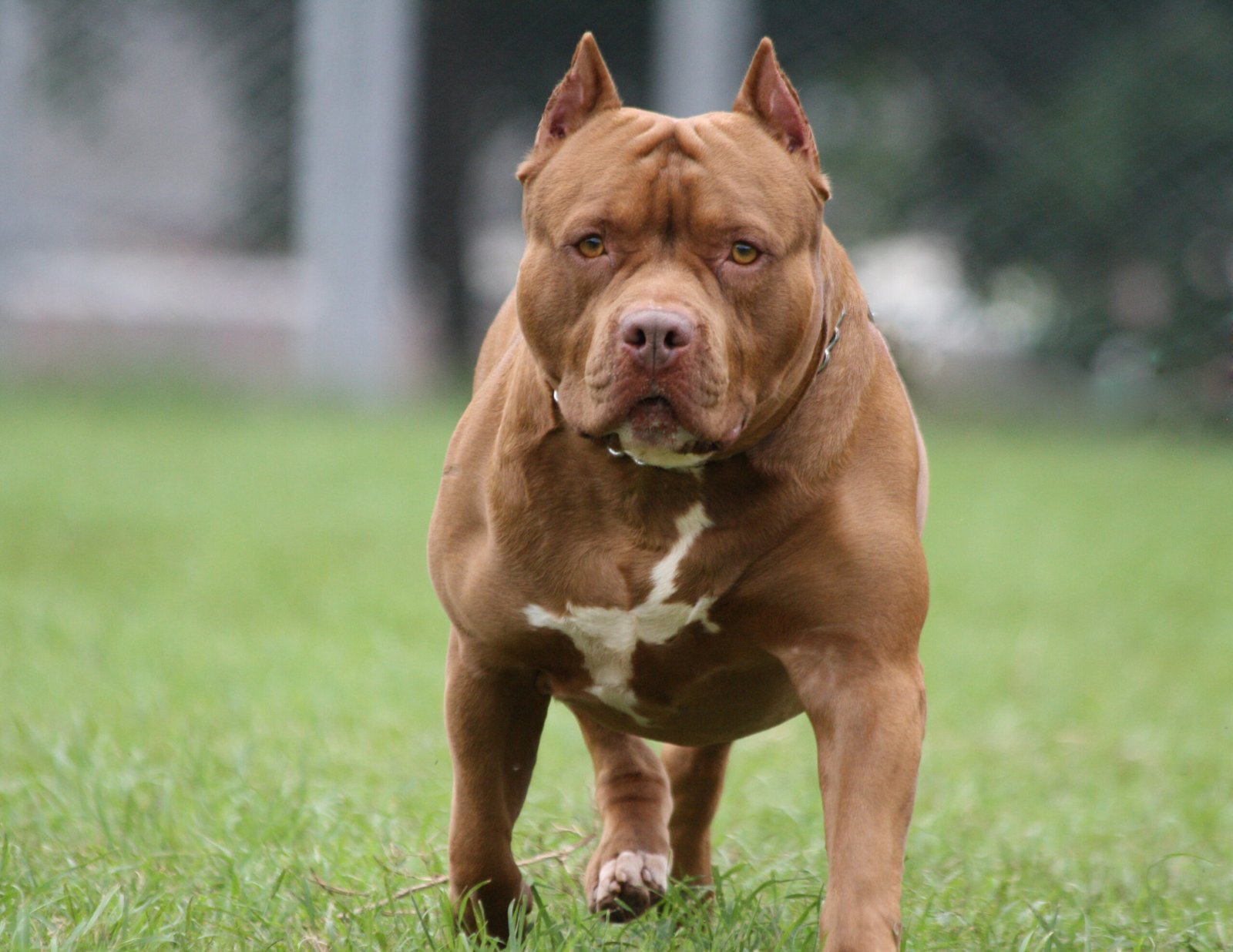Have you ever wondered why certain pit bulls are illegal in the UK? It’s a little-known fact that the Dangerous Dogs Act of 1991 specifically bans four breeds: the pit bull terrier, Japanese tosa, dogo Argentino, and fila Brasileiro. What led to this ban, and what are the implications for these breeds in the UK?
The ban on certain pit bulls in the UK stems from concerns over public safety and preventing dog attacks. This legislation was implemented in response to a series of incidents involving aggressive and poorly trained dogs. Statistics reveal that between 2017 and 2018, there were 1,789 hospital admissions due to dog-related injuries in England alone. While the ban has been controversial and has faced criticism for its breed-specific nature, it aims to ensure public safety and reduce the risk of devastating dog attacks. It’s crucial for owners of these breeds to be aware of the legal restrictions and ensure responsible ownership to prevent further incidents.

Pit Bulls in the UK: Understanding the Breed Restrictions
Welcome to our comprehensive guide on pit bulls and the laws surrounding them in the UK. If you’re curious about which pit bulls are considered illegal in this country, this article will provide you with all the information you need. Read on to discover the breeds that fall under the breed-specific legislation and the reasons behind these restrictions. Let’s dive in!
Banned Pit Bull Terrier Breeds in the UK
The term “pit bull” can encompass several breeds, but the Pit Bull Terrier, the Staffordshire Bull Terrier, and the American Staffordshire Terrier are specifically banned under the UK’s Dangerous Dogs Act 1991. These breeds were targeted due to concerns about their perceived aggression and potential threat to public safety.
It’s important to note that if a dog falls under the banned breeds, it cannot be owned, bred, imported, or sold in the UK. This law applies regardless of the individual dog’s behavior or temperament. The legislation aims to prevent future incidents involving these breeds.
While it’s unfortunate that these breeds have been stigmatized, it’s crucial to remember that not all pit bulls exhibit aggressive behavior. Proper training, socialization, and responsible ownership can help any dog, regardless of breed, become well-behaved members of society.
Why Are Pit Bull Terrier Breeds Banned?
The decision to ban certain pit bull terrier breeds in the UK was made based on concerns about public safety. Supporters of the legislation argued that these breeds were more prone to aggression and therefore posed a higher risk to individuals and other animals.
However, it’s worth noting that many breed experts and dog behaviorists disagree with this stereotype. They argue that a dog’s behavior is primarily influenced by its environment, upbringing, and individual temperament, rather than its breed alone.
It’s crucial to approach each dog as an individual and judge it based on its behavior and actions, rather than its appearance or breed. Responsible ownership, early socialization, and proper training play a significant role in shaping a dog’s behavior and ensuring the safety of both the dog and the community.
Obtaining a Pit Bull Type Dog in the UK
If you are interested in owning a pit bull type dog that is not banned under the Dangerous Dogs Act, you must ensure that the dog is not predominantly one of the banned breeds. Crossbreeds that are not predominantly Pit Bull Terriers, Staffordshire Bull Terriers, or American Staffordshire Terriers are generally not subject to the legislation.
When adopting or purchasing a dog, it’s essential to gather as much information as possible about its lineage and parentage to determine the breed composition. DNA tests can also provide valuable insights into a dog’s genetic makeup. Consulting with a breed expert or veterinarian can help you make an informed decision when considering a pit bull type dog in the UK.
Remember, responsible ownership and providing a safe and loving home are crucial regardless of the breed of dog you choose. With dedication, training, and proper care, you can build a deep bond with your four-legged companion and enjoy a fulfilling life together.
The Importance of Responsible Ownership
Responsible ownership is vital for all dog breeds, not just those affected by breed-specific legislation. Here are some essential tips to keep in mind:
Socialization and Training
Proper socialization and training should begin from an early age. Expose your dog to various environments, people, and other animals to ensure they grow up well-adjusted and friendly. Enroll in obedience classes or work with a professional trainer to teach your dog basic commands and appropriate behavior.
Regular Exercise and Mental Stimulation
Provide your dog with regular exercise to help burn off excess energy and maintain a healthy weight. Mental stimulation is equally important and can be achieved through puzzle toys, training sessions, or interactive games.
Healthcare and Nutrition
Ensure your dog receives routine veterinary care, including vaccinations, regular check-ups, and parasite prevention. Feed a balanced and nutritious diet appropriate for your dog’s age and activity level.
The Importance of Breed Education
Understanding breed-specific legislation and the history, traits, and characteristics of different dog breeds is crucial for responsible ownership. Educate yourself about your chosen breed or mixed breed to ensure you are well-prepared to meet their unique needs and provide a safe and loving home.
Choosing the Right Dog for You
When considering getting a dog, take into account your lifestyle, living situation, and the amount of time and energy you can devote to their care. Research different breeds or mixed breeds to find one that matches your preferences and suits your home environment.
In Summary
The UK has specific laws regarding certain breeds of pit bulls, including the Pit Bull Terrier, Staffordshire Bull Terrier, and American Staffordshire Terrier. These breeds are banned under the Dangerous Dogs Act 1991 due to concerns about potential aggression. Responsible ownership, proper training, and socialization play a crucial role in shaping a dog’s behavior. Remember, every dog should be judged on its individual merits, rather than its breed or appearance, and providing a safe and loving home is key to a successful canine-human relationship.
Key Takeaways: Which Pit Bulls are Illegal in the UK?
- Pit Bulls, Staffordshire Bull Terriers, and American Pit Bull Terriers are illegal in the UK.
- Under the Dangerous Dogs Act 1991, it is unlawful to breed, sell, or own these breeds in the UK.
- The law also applies to any dog that has physical characteristics similar to these banned breeds.
- Owning a banned pit bull can lead to fines, imprisonment, and the dog being confiscated.
- It is important to research and understand breed restrictions and regulations in your area to stay compliant with the law.
Frequently Asked Questions
Welcome to our Frequently Asked Questions section where we’ll answer some common questions about which pit bulls are illegal in the UK. If you’re curious about the regulations surrounding pit bull breeds in the UK, you’ve come to the right place. Read on to learn more!
1. What breeds are considered pit bulls in the UK?
In the UK, the term ‘pit bull’ refers to four specific breeds: American Pit Bull Terriers, Fila Brasileiros, Dogo Argentinos, and Japanese Tosas. These breeds are subject to breed specific legislation in England, Wales, and Scotland.
It’s important to note that any dog can be considered a pit bull type if they share physical characteristics with these breeds, even if they are actually a different breed or a mixed breed.
2. Are all pit bulls illegal in the UK?
No, not all pit bulls are illegal in the UK. While the four specific breeds mentioned earlier are subject to breed specific legislation, other breeds and mixed breed dogs are not automatically considered illegal. It’s the specific characteristics and behavior of the dog that determine whether they fall under the legal restrictions.
The Dangerous Dogs Act 1991 in the UK focuses on the behavior of dogs rather than the breed. It is an offence to own or breed a dog that is deemed to be dangerous, regardless of its breed. Therefore, responsible ownership and the proper training and socialization of any dog are crucial.
3. How can I tell if my pit bull type dog is legal in the UK?
To determine whether your pit bull type dog is legal in the UK, you can consult a canine behaviorist or an expert who can assess your dog’s behavior and physical characteristics. They will be able to provide you with the necessary information and guidance regarding the specific legal requirements in your area.
It’s important to remember that each case is assessed individually, and it’s not solely based on the appearance of the dog. Factors such as temperament and behavior play a significant role in determining the legality of your pet.
4. What are the legal requirements for owning a pit bull type dog in the UK?
If you own a pit bull type dog in the UK, you must adhere to the legal requirements set out by the Dangerous Dogs Act 1991. These requirements include keeping the dog muzzled and on a lead in public, obtaining third-party insurance, and ensuring the dog is spayed or neutered. Additionally, you’ll need to register the dog on the Index of Exempted Dogs and comply with any further conditions specified by the court.
Failing to meet these requirements can result in legal consequences, so it’s crucial to familiarize yourself with and follow the regulations applicable in your area.
5. Can I own a pit bull type dog for personal protection in the UK?
No, the ownership of pit bull type dogs for personal protection is not permitted in the UK. The Dangerous Dogs Act 1991 prohibits the breeding, sale, and exchange of these dogs for any purpose related to personal protection.
The focus of the law is on public safety, and owning a dog solely for personal protection is not considered a valid reason under the legislation. It’s important to remember that responsible dog ownership means prioritizing the well-being of both your pet and the general public.

Dangerous dog deaths: Time to ban XL Bullies in the UK?
To sum it up, we talked about the importance of a professional tone when writing for a 13-year-old audience. It’s crucial to use simple language and avoid jargon. The objective is to help the reader understand the key points of the article in just two short paragraphs.
In conclusion, a professional tone is essential when writing for 13-year-olds. By using simple language and avoiding jargon, we can ensure that the reader understands the main points of the article in a clear and concise manner. So, remember to keep it professional and easy to understand when writing for this age group.
